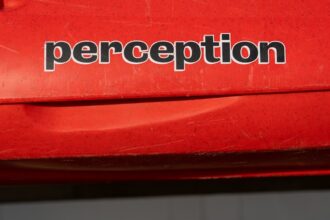Depersonalization Derealization Disorder (DPDR) is a complex mental health condition that can leave you feeling detached from your own thoughts, feelings, and sense of self. It often manifests as a disconnection from reality, where you may feel as though you are observing yourself from outside your body or that the world around you is unreal or distorted. This disorder can be incredibly disorienting, leading to feelings of confusion and anxiety.
It is essential to understand that DPDR is not merely a fleeting experience; it is a persistent condition that can significantly impact your daily life. The onset of DPDR can be triggered by various factors, including extreme stress, trauma, or significant life changes. While many people may experience brief episodes of depersonalization or derealization in response to stress, those with DPDR experience these sensations more intensely and frequently.
This disorder can be isolating, as it often feels like you are trapped in a surreal state, unable to connect with your surroundings or even with yourself. Understanding the nature of DPDR is the first step toward seeking help and finding ways to cope with its effects.
Key Takeaways
- Depersonalization Derealization Disorder is a mental health condition characterized by feeling detached from oneself and the surrounding environment.
- Symptoms of Depersonalization Derealization Disorder include feeling like an outside observer of one’s thoughts and actions, emotional numbness, and distorted perception of time and space.
- Depersonalization Derealization Disorder has been linked to existentialism, as individuals may question the nature of reality and their own existence.
- The disorder can affect the perception of reality, leading to feelings of unreality and disconnection from the world.
- Depersonalization Derealization Disorder can impact daily functioning, causing difficulties in relationships, work, and overall quality of life.
Symptoms and Characteristics of Depersonalization Derealization Disorder
The symptoms of Depersonalization Derealization Disorder can vary widely from person to person, but they generally fall into two main categories: depersonalization and derealization. Depersonalization involves feelings of detachment from oneself, where you might feel like an observer of your own life rather than an active participant. You may experience a sense of emotional numbness or a feeling that your thoughts and actions are not your own.
This can lead to a profound sense of alienation and confusion about your identity. On the other hand, derealization refers to the perception that the world around you is unreal or distorted. You might find that familiar places seem strange or that people appear as if they are in a dream.
This altered perception can make it challenging to engage with your environment fully. Both depersonalization and derealization can be accompanied by anxiety, depression, and difficulty concentrating, further complicating your ability to function in daily life. Recognizing these symptoms is crucial for understanding your experiences and seeking appropriate support.
The Relationship Between Depersonalization Derealization Disorder and Existentialism

The experience of depersonalization and derealization often intersects with existential themes, prompting deep questions about the nature of existence and reality.
This philosophical lens can provide a framework for understanding your experiences, as you grapple with concepts such as selfhood, consciousness, and the nature of reality itself.
Existentialism posits that individuals must confront the inherent absurdity of life and create meaning in their existence. For those experiencing DPDR, this confrontation may be intensified, as the disorder can strip away the familiar anchors of identity and reality. You may find yourself pondering profound questions about your purpose and place in the world, leading to both anxiety and insight.
Engaging with existential philosophy can offer a way to navigate these feelings, allowing you to explore the depths of your experience while seeking to reclaim a sense of agency in your life.
How Depersonalization Derealization Disorder Affects Perception of Reality
| Aspect | Impact on Perception of Reality |
|---|---|
| Sensory experiences | Heightened or dulled senses, altered perception of time and space |
| Emotional responses | Difficulty in recognizing and expressing emotions, feeling disconnected from oneself |
| Cognitive function | Difficulty in concentrating, memory problems, feeling detached from thoughts |
| Interpersonal relationships | Struggle to connect with others, feeling isolated and detached in social interactions |
| Perception of self | Feeling like an outside observer of one’s own thoughts and actions, loss of sense of identity |
Your perception of reality is fundamentally altered when you experience depersonalization and derealization. The world may seem flat or two-dimensional, colors may appear muted, and sounds may feel distant or echoing. This distortion can create a sense of unreality that makes it difficult for you to engage with your surroundings fully.
Everyday activities may become challenging as you struggle to connect with people or places that once felt familiar and comforting. This altered perception can also lead to significant cognitive dissonance. You might find yourself questioning whether what you are experiencing is real or if it is merely a figment of your imagination.
This uncertainty can exacerbate feelings of anxiety and isolation, as you grapple with the fear that you are losing touch with reality itself. Understanding how DPDR affects your perception is crucial for developing coping strategies and seeking appropriate treatment.
The Impact of Depersonalization Derealization Disorder on Daily Functioning
Living with Depersonalization Derealization Disorder can have profound implications for your daily functioning. The persistent feelings of detachment and unreality can interfere with your ability to perform routine tasks, maintain relationships, and engage in work or school activities. You may find it challenging to concentrate on tasks or make decisions, leading to frustration and a sense of inadequacy.
Social interactions can also become strained as you struggle to connect with others emotionally. Friends and family may not understand what you are going through, which can lead to feelings of isolation and loneliness. The impact on your daily life can be overwhelming, making it essential to seek support and develop strategies for managing the disorder effectively.
Recognizing how DPDR affects your functioning is a vital step toward reclaiming control over your life.
Coping Mechanisms and Treatment Options for Depersonalization Derealization Disorder

Finding effective coping mechanisms and treatment options for Depersonalization Derealization Disorder is crucial for managing its symptoms and improving your quality of life. Therapy is often a primary avenue for treatment, with cognitive-behavioral therapy (CBT) being particularly effective in helping individuals reframe their thoughts and develop healthier coping strategies. Through therapy, you can explore the underlying causes of your DPDR and work toward integrating your experiences into a more cohesive sense of self.
In addition to therapy, mindfulness practices can be beneficial in grounding yourself in the present moment. Techniques such as meditation, deep breathing exercises, and body awareness practices can help you reconnect with your body and surroundings, reducing feelings of detachment. Engaging in creative outlets like art or writing can also provide an avenue for self-expression and exploration of your experiences.
Finding what works best for you may take time, but developing a personalized coping strategy is essential for managing DPDR effectively.
The Link Between Depersonalization Derealization Disorder and Anxiety or Trauma
There is a significant link between Depersonalization Derealization Disorder and experiences of anxiety or trauma. Many individuals who develop DPDR report having experienced traumatic events or prolonged periods of stress prior to the onset of their symptoms. The mind’s response to overwhelming stressors can manifest as depersonalization or derealization as a protective mechanism—a way for you to distance yourself from painful emotions or memories.
Understanding this connection is vital for addressing the root causes of your experiences. By exploring past traumas in therapy, you can begin to process these events and work toward healing. Additionally, addressing anxiety through therapeutic techniques can help reduce the frequency and intensity of DPDR symptoms.
Recognizing the interplay between trauma, anxiety, and DPDR allows for a more comprehensive approach to treatment.
Understanding the Concept of Existence in the Context of Depersonalization Derealization Disorder
The experience of depersonalization and derealization invites profound contemplation about existence itself. When you feel disconnected from your thoughts or surroundings, it raises questions about what it means to truly exist. This exploration can lead to existential inquiries about identity, consciousness, and the nature of reality.
Engaging with these concepts can be both daunting and enlightening as you navigate the complexities of your experiences. In this context, understanding existence becomes an essential part of managing DPDR. You may find solace in philosophical discussions that explore the nature of selfhood and reality.
By examining these ideas, you can begin to construct a more coherent narrative about your experiences, allowing for greater acceptance and integration into your sense of self.
Philosophical and Psychological Perspectives on Depersonalization Derealization Disorder
Philosophical and psychological perspectives offer valuable insights into understanding Depersonalization Derealization Disorder. From a psychological standpoint, DPDR is often viewed through the lens of dissociation—a defense mechanism that allows individuals to cope with overwhelming stress or trauma by disconnecting from their emotions or surroundings. This perspective emphasizes the importance of addressing underlying psychological issues in treatment.
Philosophically, DPDR raises questions about consciousness and identity that have been explored by thinkers throughout history. Existential philosophers have grappled with themes of alienation and authenticity that resonate deeply with those experiencing DPDR. By examining these perspectives, you can gain a deeper understanding of your experiences while also finding validation in the shared human struggle for meaning and connection.
The Role of Mindfulness and Self-Awareness in Managing Depersonalization Derealization Disorder
Mindfulness and self-awareness play crucial roles in managing Depersonalization Derealization Disorder effectively. Practicing mindfulness allows you to cultivate an awareness of your thoughts and feelings without judgment, helping you stay grounded in the present moment. Techniques such as mindful breathing or body scans can help anchor you when feelings of detachment arise.
Self-awareness also involves recognizing triggers that may exacerbate your symptoms. By identifying situations or stressors that lead to increased feelings of depersonalization or derealization, you can develop strategies to cope more effectively when they arise. Building this awareness empowers you to take an active role in managing your experiences rather than feeling at their mercy.
Seeking Support and Building Resilience in the Face of Depersonalization Derealization Disorder
Seeking support is essential when navigating the challenges posed by Depersonalization Derealization Disorder. Connecting with mental health professionals who understand the complexities of DPDR can provide validation and guidance as you work through your experiences. Additionally, support groups or online communities can offer a sense of belonging as you share your journey with others who understand what you’re going through.
Building resilience in the face of DPDR involves cultivating coping strategies that empower you to navigate life’s challenges more effectively. This may include developing healthy routines, engaging in self-care practices, and fostering connections with supportive individuals in your life. By prioritizing your mental health and seeking support when needed, you can build resilience that allows you to face DPDR with greater strength and confidence.
In conclusion, understanding Depersonalization Derealization Disorder requires a multifaceted approach that encompasses its symptoms, philosophical implications, psychological perspectives, and coping strategies. By exploring these dimensions, you can gain insight into your experiences while also finding pathways toward healing and resilience.
Depersonalization-derealization disorder is a complex mental health condition characterized by persistent feelings of detachment from one’s body or surroundings, often leading individuals to question the nature of their existence. An insightful article that delves into the nuances of this disorder and its impact on one’s perception of reality can be found on Unplugged Psychology’s website. This resource provides a comprehensive overview of the symptoms, potential causes, and therapeutic approaches for managing the disorder. For more information, you can read the article by visiting




